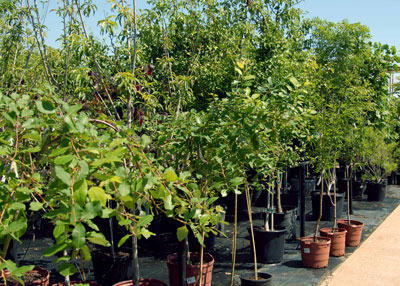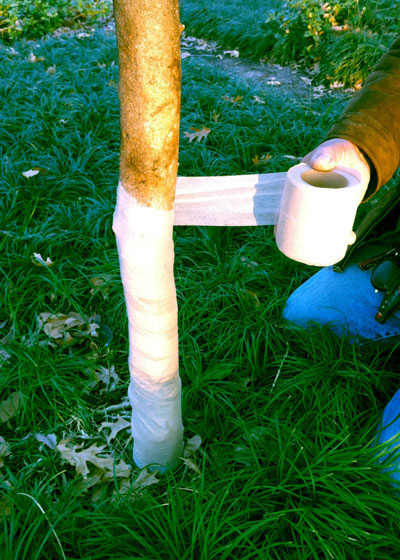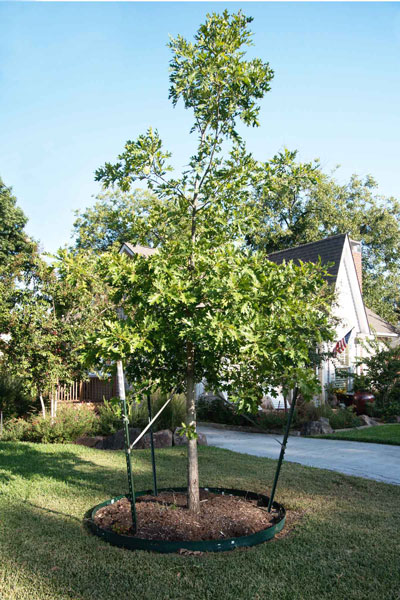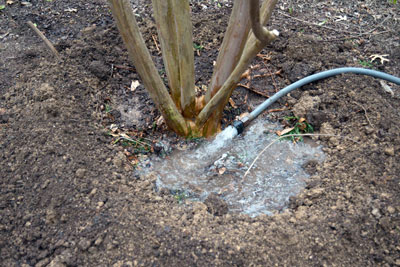Tree Time Across Texas

Spring is the time that thousands of Texans head out to nurseries to choose and then plant new shade trees. I have 10 Tips to help you get the most out of the experience. Here they are in rapid-fire mode:
1. Determine the space you have available for the tree. For large trees, stay 15 feet away from the foundation and drive and 50 feet away from power lines.
2. Buy only the highest quality trees, both in terms of species and specimen.
3. Transport the tree home carefully. Wrap its leaf canopy in old sheets or a piece of nursery shade fabric. Read this sentence twice: You CANNOT drive slowly enough to prevent windburn to leaves.
4. Dig the hole large enough to accommodate the tree’s soil ball – no wider than necessary, and certainly no deeper. (It would settle.) The tree is going to have to live in the native soil, so there’s no point in adding amendments.
5. Lift the tree by its soil ball, not by its trunk. Carefully lower it into the hole. Fill the hole with the soil you removed. Tamp the loose soil with a broom handle, then water it slowly and add more soil. Water again. Once the hole is filled, use the extra soil to build a donut-shaped berm to facilitate watering.
6. Apply paper tree wrap to the trunk from the ground up to the lowest branches. This is critical for oaks and pistachios. The wrap keeps sunscald from ruining the trunk on the south and west sides.

7. Stake and guy the trunk to keep the tree plumb. Use three stakes, one due south, one northeast and one northwest. Run the cables through pieces of old garden hose to prevent damage to the bark. Keep the cable taut at all times.

8. Apply a liquid root stimulator following planting. Repeat monthly for balled-and-burlapped trees.
9. Prune to compensate for roots lost in the digging (balled-and-burlapped and bare-rooted trees). Container-grown trees suffer no root loss, so the pruning will not be required except to clip any roots that are encircling the ball of soil.
10. Water slowly and deeply whenever the soil begins to feel dry to the touch. Critical point: sprinkler irrigation alone will not be sufficient to meet a new tree’s needs.

